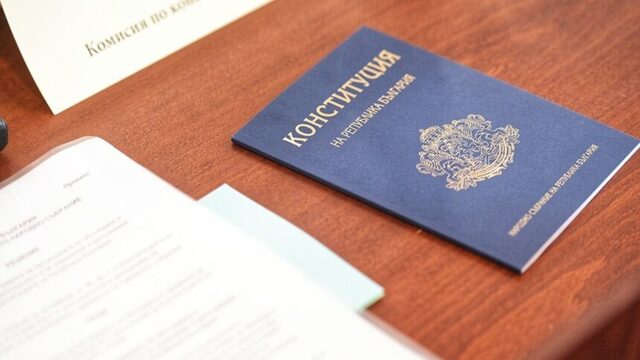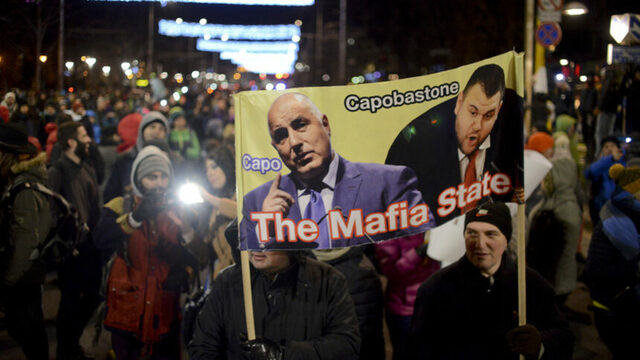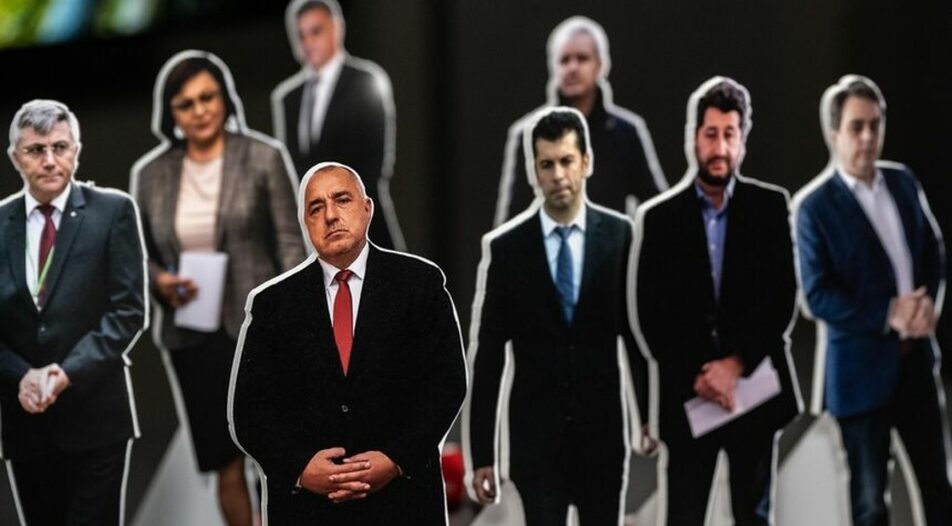As another year ends, it is time for the traditional annual overview of the key events that shaped Bulgaria in the past 12 months - plus a look ahead. Just like the three years that preceded it, 2023 was turbulent and eventful, and some of the wilder things that happened were hard to foresee.
These included the creation of a wide (non)coalition that includes three political factions, which mix like oil and water - and even more surprisingly, it has lasted six months; the swift elimination of Prosecutor General Ivan Geshev from the scene and the serious moves towards decoupling from Russian oil.
So we can all but wonder what 2024 has in store for us. But before we take a peek into the future, what mattered most in 2023?
Political whirlwind leaves no stone unturned
A lot changed in Bulgarian politics in 2023. At the start of the year, things looked bleak - the country's application to join the Schengen free travel space had just been vetoed once again, all the executive power was in the hands of the President and his unaccountable caretaker cabinets and the parliament had failed once again to form a cabinet after three consecutive early votes - a sign of the deepening polarization and fragmentation of the whole political system.
The state of the country at the end of 2024 could not be more different. The first of the major changes has been the isolation of President Rumen Radev - his days of steering the ship in whatever direction he wanted are now over. He and his caretaker cabinets did their best to thwart significant military aid to Ukraine, struck strange deals with the Turkish state gas company and stalled all attempts to launch the country's coal-free energy transition. In all fairness, most of these policies were inherited from Boyko Borissov's time, but in the stagnant interregnum created by the two-year-long political crisis in the country, the President failed to turn into a force for good.
Hence, 2023 put an end to his domination, albeit in a strange way. The figure of Mr Radev made the political nemeses WCC-DB and GERB unite against all the odds (and the wishes of their own voters) and, after another inconsequential election in April, enter a unique "rotational non-coalition" or "assemblage," as it became known later.
The strange stability of the "assemblage"

What is even stranger than the formation of the new majority is how durable it has proved. Of course, there are weekly (sometimes even daily) fires started by each side, but the cabinet, led by Prof. Nikolay Denkov and ex-EU Commissioner Mariya Gabriel has persevered against all odds. This could not have happened without the support of the parliamentary majority of GERB, WCC-DB and the thinly veiled support of MRF - in the past six months, the legislature has had a revival that has been unseen since Boyko Borissov rose to power 15 years ago.
With the combined efforts of the executive and the Parliament, a lot was done (at least in quantity) over the past six months - a new anti-corruption law and commission were created (still to prove their effectiveness); changes to legislation declogged the stream of EU recovery funds; some regulators got their new (or incumbent) heads and, most importantly, a Constitutional reform process was set in motion, after 8 years on the backburner.
Anti-corruption goes nowhere
But not everything is rosy - this progress came at the price of politicians with a huge baggage like Boyko Borissov and MRF's Delyan Peevski being exonerated for their past misdemeanors and taking a central spot on the political stage. Mr Peevski, who is on the US and UK sanctions lists for "high corruption" and has rarely appeared in Parliament in more than a decade, is now the most active MP you've ever seen. Mr Borissov, for his part, has had all of the corruption cases raised against him dropped by the forever graft-blind State Prosecution and has once again dodged court. The jokes that the new "non-coalition" is the best way to launder the reputations of the two have turned into mundane reality.
All of this happened with the muted consent of WCC-DB and through the surprisingly swift and painless elimination of ex-Prosecutor General Ivan Geshev. Don't get us wrong - any day he remained on the job was a dire day for Bulgarian justice. But the way he was quickly sacrificed by the "assemblage" in May showed exactly how, despite changing, things tend to stay the same in Bulgarian politics - decisions are made behind closed doors and always involve some shady agreements that are far from the ideals of the rule of law.

Decoupling from Russia
Yet, there have been some unexpectedly bold moves by the non-coalition, too - like the actions that could lead to the end of Russian dominance in the Bulgarian energy sector. First of all, the cabinet managed to kick-start the process of getting rid of the Belene project nuclear reactors. If all goes well, they should be sold to Ukraine as part of the big package of aid to the beleaguered country that was unlocked once the presidential dominance was broken. Apart from that, Bulgaria will be sending some of its redundant defense equipment to Kyiv, such as 100 armored vehicles and old anti-aircraft rocket parts.
But the biggest break from Russia's grip comes in the shape of the upcoming elimination of the use of Russian oil in the Neftochim - Burgas refinery. The new majority pushed the termination of the derogation for the use of Russian oil by the refinery within nine months and it is expected that the final load of Russian oil had already been unloaded in Burgas. It is still unknown whether this would lead to any supply shocks in the country or if it would lead to the final sale of the refinery owned by Lukoil, but in any case Russian dominance of the crucial oil sector will never be the same.
Go West!
Last, but not least, 2023 marked a very clear and dedicated move towards greater integration within the EU and the Euro-Atlantic space. While Bulgaria's Schengen and Eurozone future remains far from certain, there is marked progress when it comes to joining the free travel area (not wholly due to Bulgarian efforts, to be fair - thank you, Romanian brothers!) and there are also positive signs for the euro, despite the imperfectly balanced state budget.
Furthermore, Sofia is finally showing commitment to take responsibility for its defense. Once again, this is not solely due to its own efforts - NATO was the one that pushed for the deployment of a battle group in the country, which was finalized at the end of 2022 after many years of procrastination. But, credit where credit is due, the Parliament managed to quickly push through another long-awaited deal for the acquisition of Stryker armored vehicles. This can all be counted as success after many years in the doldrums.
To conclude, 2023 has been a year of mixed results. A lot of the reforms either did not happen (intelligence services purging from Russian influence, for example) or were half-baked and would likely be ineffective (anti-corruption). A lot remains the same, despite the entry of "new" and "clean" political players like WCC-DB on the stage - they still prefer to take important decisions in the dark and with little scrutiny. But also, overall, there was a marked shift away from the tendencies of unaccountable rule under President Radev and his leanings towards Russia. This is no small feat - and can easily be undone, look at Slovakia for example, but it is something. And what more do we need but a little something to look forward to in 2024?
As another year ends, it is time for the traditional annual overview of the key events that shaped Bulgaria in the past 12 months - plus a look ahead. Just like the three years that preceded it, 2023 was turbulent and eventful, and some of the wilder things that happened were hard to foresee.
These included the creation of a wide (non)coalition that includes three political factions, which mix like oil and water - and even more surprisingly, it has lasted six months; the swift elimination of Prosecutor General Ivan Geshev from the scene and the serious moves towards decoupling from Russian oil.












